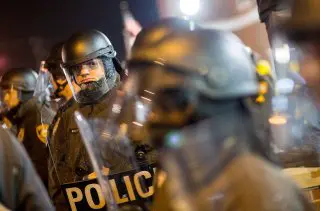In the deadly terrorist attack that claimed the lives of 95 people on Saturday in the Turkish capital, analysts see the effect of the fallout from surge of violence and terrorism in Syria and Iraq, both neighbors to Turkey.
"What we see is a spillover impact of the ongoing conflicts in our neighboring countries in the southeast where militants of all sorts of terror groups wreak a havoc," Mehmet Seyfettin Erol, professor of international relations at Ankara-based Gazi University, told Xinhua.
"The terror that has been taking a huge toll on civilians in Syria and Iraq is now overflowing to Turkey," he said.
The attack that killed 95 Turkish civilians, according to official figures as of Sunday, and injured 246 was the work of suicide bombers who blew themselves up in the midst of a crowd that were about to hold a major peace rally in downtown area near Central Train Station in Ankara.
Although the interim Prime Minister Ahmet Davutoglu listed several terrorist groups as possible culprits on Saturday, local media reported that investigators are now focusing more on the Islamic State (IS) as the key suspect.
Yunus Emre Alagoz, the missing brother of Abdurrahman Alagoz who is believed to be the suicide bomber behind the attack in July in the southeastern town Suruc of Sanliurfa province that claimed the lives of 34 people, was named as a suspect.
Both brothers reportedly joined the IS in 2014.
Turkey's National Intelligence Organization (MIT) former deputy head Cevat Ones said the attack is almost certainly linked to radical Islamist groups operating in the Middle East. IMPACT ON ELECTIONS
The timing and motivation of the attacks are also in the minds of analysts who are trying to make sense of what happened in the deadliest terrorist attack in the Turkish history.
"We have to ask ourselves why the IS attacked Turkey and why now," Idris Gursoy, Ankara-based political analyst, said in his comments to Xinhua.
"There may be some groups, home and abroad, that want to influence voters' behavior when there are only three weeks left to the snap poll," he explained.
Turkey is heading to repeat elections on Nov. 1 after major political parties failed to form a coalition government in the aftermath of the inconclusive June elections.
Many of those who joined the peace rally in Ankara on Saturday are affiliated with the pro-Kurdish Peoples' Democracy Party (HDP).
The HDP exceeded expectations in June and overcame the high 10 percent national threshold, costing the Justice and Development Party (AKP) the majority it has been holding in the parliament for the last 13 years.
The outspoken HDP leader Selahattin Demirtas questioned how the government was unable to prevent the attacks despite the fact that the government knows all about what happens in Turkish capital through vast intelligence network.
He described the incident as part of the same campaign as the bombing of an HDP rally in the southeastern city of Diyarbakir on the eve of June elections and the suicide bombing blamed on IS in Suruc in July. INTELLIGENCE FAILURE QUESTIONED
Security experts believe there was a colossal failure of intelligence on the part of security services even though the Interior Ministry denied the vulnerability.
Ercan Tastekin, president of the Research Center for Security Strategies (GUSAM) in Ankara, blamed the government for the failure in intelligence gathering.
"Isn't a failure to obtain intelligence before an attack takes place?", he asked.
Tastekin believed the aim of attacks is to stir an internal conflict in Turkey.
"When we collectively assess various incidents that took place since June, the goal of terrorism is to instigate a chaos in the nation," he said.
Turkey has been participating in the U.S.-led campaign against the IS in Syria while battling with the outlawed Kurdish Workers' Party (PKK) at the same time since July.
The PKK is listed as terrorist organization by Turkey, the United States and the European Union. Enditem
 简体中文
简体中文

